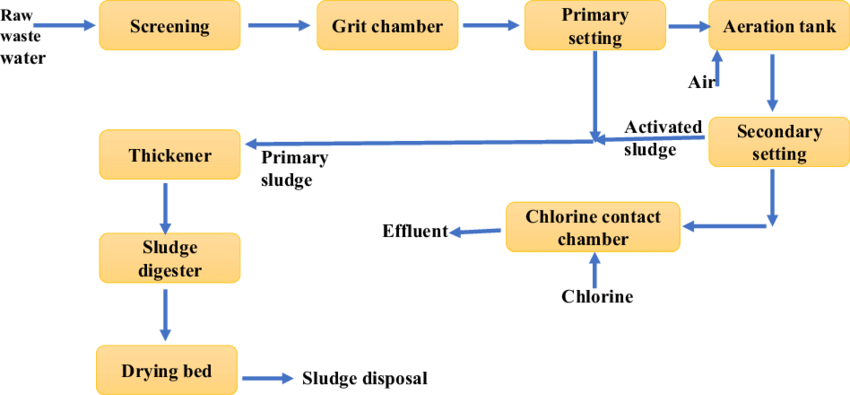The 6-Second Trick For Reclaim Waste
The 6-Second Trick For Reclaim Waste
Blog Article
Some Ideas on Reclaim Waste You Need To Know
Table of Contents5 Simple Techniques For Reclaim WasteThe Best Guide To Reclaim WasteThe Main Principles Of Reclaim Waste What Does Reclaim Waste Do?10 Easy Facts About Reclaim Waste Explained
Residential sewage waste refers to the waste and products from a residential septic tank. The correct monitoring and disposal of residential sewage waste call for liquid waste to be transferred to a sewage therapy plant where the appropriate techniques and tools are applied to cleanse and dispose of waste.
Industrial waste commonly includes possible risks, such as combustible materials or a combination of liquid and solid waste products, and needs an advanced and thorough disposal process. The disposal of commercial waste normally entails the filtration of waste before transportation to make sure secure and proper disposal. Industrial waste is created from by-products and overflow of commercial procedures and manufacturing.
This kind of waste can not utilize the exact same sewer administration transport or procedures as septic or business fluids. The hazardous waste administration procedure needs the assessment and screening of fluid waste prior to it goes through the disposal process (liquid waste disposal). Drainage waste is the fluid waste that comes from overflow and excess stormwater in very booming locations or cities
Drainage waste can create contamination and flooding if not handled properly. Making certain appropriate waste management can prevent calamities and lower environmental damage.
Getting My Reclaim Waste To Work
Contact PROS Providers today to find out about our waste management and disposal services and the correct ways to take care of the fluid waste you produce.
(https://reclaimwaste1.mystrikingly.com/blog/efficient-liquid-waste-disposal-in-melbourne-why-reclaim-waste-is-your-go-to)Do you recognize what occurs to your water when you disengage, flush the toilet or drain pipes the washing equipment? No? Well, it's worth recognizing. This so-called 'wastewater' is not just an essential resource yet, after treatment, will certainly be released to our land, rivers or the ocean. Made use of water from bathrooms, showers, baths, kitchen sinks, washings and commercial procedures is recognized as wastewater.

water used to cool equipment or clean plant and equipment). Stormwater, a kind of wastewater, is overflow that streams from agricultural and urban areas such as roofings, parks, yards, roadways, courses and gutters into stormwater drains pipes, after rainfall. Stormwater streams neglected directly to local creeks or rivers, ultimately reaching the sea.
10 Easy Facts About Reclaim Waste Shown
In Queensland, many wastewater is dealt with at sewage therapy plants. Wastewater is carried from residential or commercial sites via a system of sewage systems and pump terminals, called sewerage reticulation, to a sewage treatment plant. Neighborhood governments construct, maintain and operate most sewer therapy plants. Operators are accredited under the Environmental Management Act 1994 to release cured wastewater at an acceptable ecological criterion into waterways.
The Department of Natural Resources suggests city governments about managing, operating and preserving sewage systems and therapy plants. In unsewered areas, regional federal governments might require owners to install individual or household sewage treatment systems to treat residential wastewater from toilets, cooking areas, washrooms and washings. The Division of Natural Resources authorizes using home systems when they are proven to be effective.
A lot of stormwater receives no therapy. In some brand-new communities, treatment of some stormwater to eliminate clutter, sand and crushed rock has actually begun making use of gross contaminant catches. Wastewater treatment occurs in 4 stages: Gets rid of solid issue. Larger solids, such as plastics and various other objects mistakenly discharged to sewage systems, are eliminated when wastewater is passed through displays.
Utilizes little living organisms knows as micro-organisms to damage down and get rid of remaining dissolved wastes and fine bits. Micro-organisms and wastes are included in the sludge.
The Ultimate Guide To Reclaim Waste
Nutrient elimination is not readily available in all sewage treatment plants because it needs costly specialist devices. It is ending up being extra usual in Queensland. Clear fluid effluent created after treatment may still include disease-causing micro-organisms. If this effluent check out here is released right into rivers such as rivers or the sea, the micro-organisms will at some point pass away out.

This usually means wastewater needs to be dealt with or pollutants removed prior to it can be discharged to waterways. The majority of wastewater moves into the sewerage system. Under the Act, neighborhood federal governments provide approvals and permits for ecologically appropriate tasks (Periods) including wastewater releases that might have a neighborhood effect. The department administers authorizations and licences to Periods entailing wastewater launches that might have a regional or statewide effect.
Getting The Reclaim Waste To Work
Or else, samples are taken for lab evaluation. Frequently lots of examinations are required to establish the degrees of each of the various contaminants such as oils, hefty steels and pesticides in water. Monitoring supplies valid details about water high quality and can validate that permit problems are being met. The information acquired with surveillance provides the basis for making water quality decisions.
Report this page